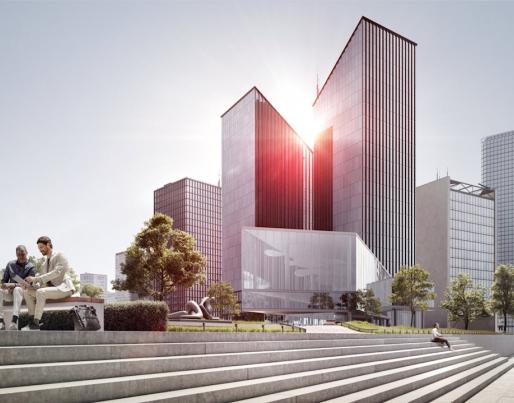
Artificial Intelligence (AI) powers the future of smart, sustainable cities

Artificial Intelligence (AI) powers the future of smart, sustainable cities
AI is transforming smart buildings into engines of sustainability, equity, and innovation. This study unveils a pioneering framework that blends technology with policy to boost efficiency, empower communities, and shape resilient, future-ready cities.
Source: new.abb.com.
Artificial Intelligence (AI) is rapidly redefining the built environment, and this paper presents a comprehensive examination of its integration into smart buildings. The authors introduce the Integrated AI-Driven Smart Buildings Framework (IAI-DSBF), a novel model designed to enhance operational efficiency, sustainability, and occupant comfort. By leveraging real-time data from IoT sensors and advanced analytics, the framework enables buildings to adapt dynamically to environmental and user conditions, while also aligning with regulatory and economic objectives.
The study highlights the multifaceted challenges of implementing AI in urban infrastructure, including data privacy, regulatory compliance, and socioeconomic disparities. The IAI-DSBF addresses these by embedding ethical considerations and inclusive design into its architecture. It promotes equitable access to smart technologies and ensures that AI-driven decisions are transparent and accountable. The framework also supports policymakers in navigating complex legal landscapes, fostering a more inclusive and resilient urban future.
Through simulations and real-world data from a smart building testbed, the framework demonstrated significant improvements across key performance indicators. These include a 99.1% increase in building performance, 98.5% in community engagement, 99.12% in economic growth, 98.2% in sustainability, and 97.5% in resilience. The findings underscore the potential of AI not only to optimise energy use and reduce emissions but also to empower communities and stimulate economic development through intelligent infrastructure.
In conclusion, the paper positions AI as a transformative force in urban planning and building management. The IAI-DSBF offers a holistic approach that integrates technology with social and policy dimensions, paving the way for future-ready cities. It calls for continued investment in AI research, robust data governance, and inclusive policymaking to ensure that the benefits of smart buildings are shared broadly across society.
Economic, policy, social, and regulatory aspects of AI-driven smart buildings.pdf
English (4.58 MB - PDF)
